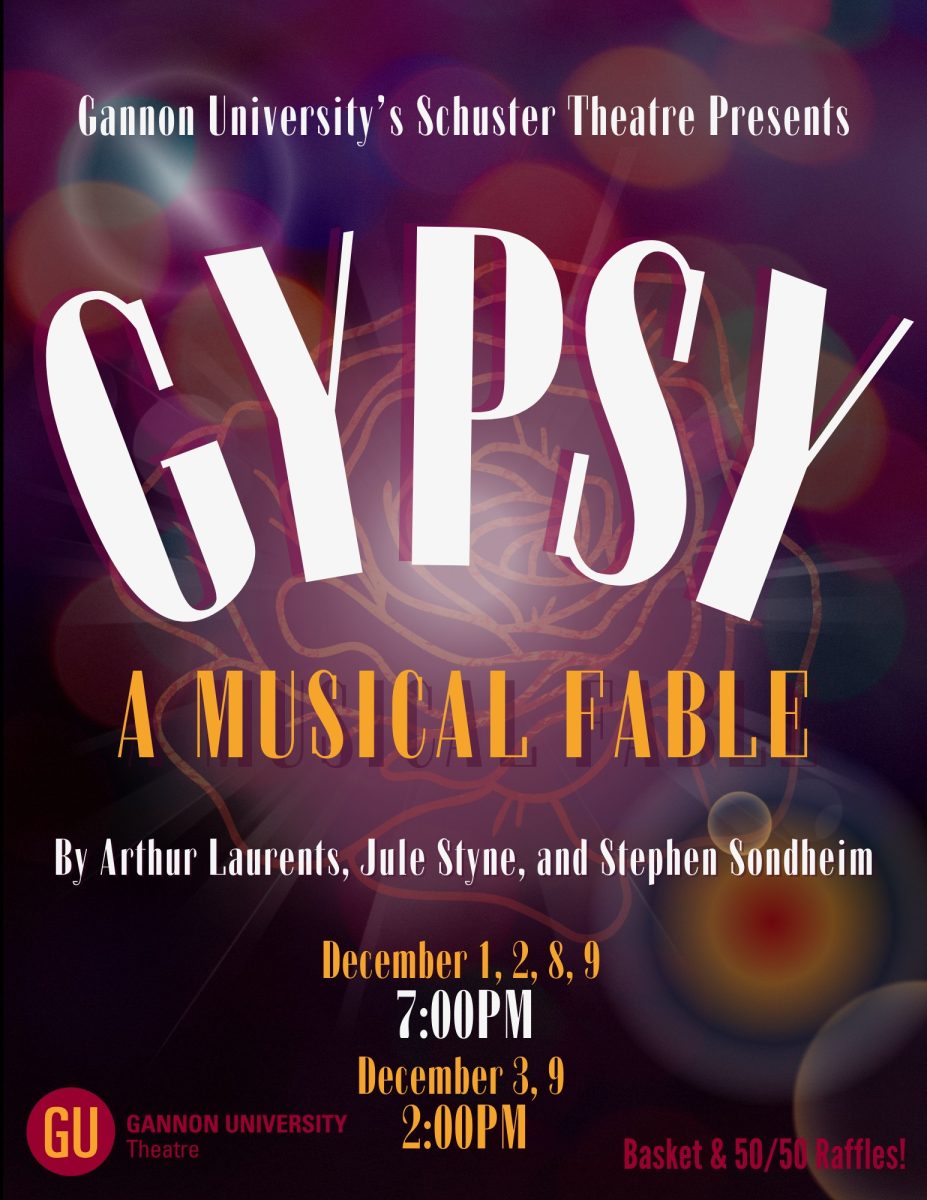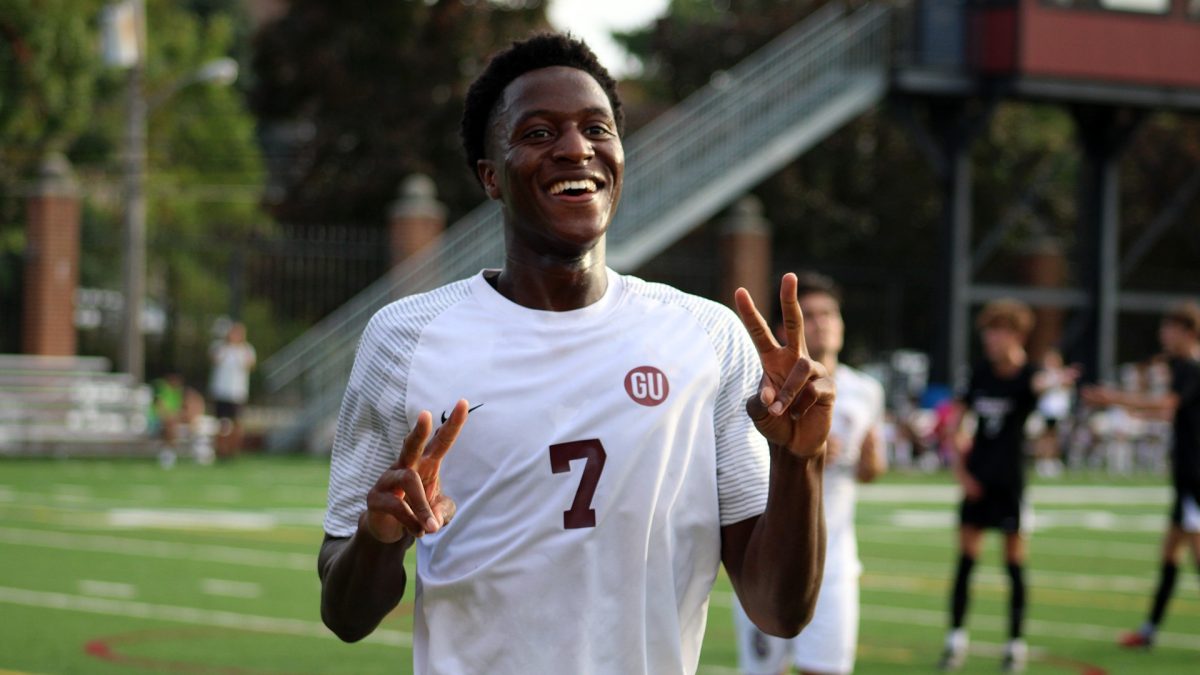Major changes are in store for Gannon University’s Honors Program starting January.
Ann Bomberger, Ph.D., an assistant professor in the English department, will assume the position of Michael DeSanctis, Ph.D., the outgoing director of the program. Linda Fleming, Ph.D., dean of the College of Humanities, Education and Social Sciences, will oversee the program.
Fleming said the change of structure in the program was necessary to increase the contact between the Honors Program and the administration and the rest of the academic programs.
“It was a way of integrating the Honors Program and other academic programs,” she said. “I think they didn’t have a lot of connection with the administration before, and now they have, which should open many possibilities for the program.”
 Bomberger will remain an English professor, a position she’s held for the last six years, and will also become the director of the Honors Program starting in January, while DeSanctis will be a professor of fine arts and theology.
Bomberger will remain an English professor, a position she’s held for the last six years, and will also become the director of the Honors Program starting in January, while DeSanctis will be a professor of fine arts and theology.
DeSanctis has served as the director of the program for five years, and was involved in its inception about 25 years ago, when Thomas Ostrowski, Ph.D., then the chair of the College of Humanities, pushed for the new program.
“He wanted to create an honors program to meet the needs of our best students and our hardest-working students,” DeSanctis said.
DeSanctis was one of two faculty members to offer honors courses at the time.
“The program has been near and dear to my heart and I’ve seen almost 25 years of students come and go,” he said.
Currently, the program contains about 200 students, DeSanctis said, and admits roughly 50 students each year. The program admitted 37 students for the 2013-14 year.
Bomberger said the program’s objective moving forward will be to connect more to an international world view and service learning experiences – two things she finds important.
Another aspect Bomberger will be working on is creating an Honors travel program, in collaboration with the Center for Social Concerns, to Melbourne, Australia. The program would focus on issues of sustainability in a living and learning environment.
The change in leadership for the program, DeSanctis said, was the result of a confluence of three things.
The first, DeSanctis said, was his decision to step down in order to be able to fully pursue other interests. Upon his request, the university granted him a dual appointment in fine arts and theology – areas he’s been pursuing for more than 40 years.
“My dad’s death in May made it clear to me that life is short and that I needed to get on with these activities,” he said.
Secondly, the administration believed it was important to find an entity to attract students interested in humanities to the university.
“Gannon, like other institutions, is functioning within a prevailing international culture that is very pragmatic and practical,” DeSanctis said.
He said not many freshmen in college are majoring in humanities, and the administration determined that the Honors Program would be “a wonderful magnet for humanities students.”
The third “river,” DeSanctis said, was the importance of pursuing a number of initiatives the provost’s office – which has been overseeing the program for seven years – wanted to pursue, including Honors travel, the possibility of an Honors residence hall and other initiatives consistent with the university’s new strategic plan.
Five years ago, DeSanctis said he told his colleagues who interviewed him for the job that the position was perfect for him, as he tends to be an idealist.
“My job, I’ve always seen, was to maintain a vision for the program and to hold the bar really high for excellence and to keep reminding the Honors faculty of how noble the teaching profession is and to keep reminding Honors students that they are catalysts for excellence in every one of their classrooms,” he said. “That in this program we take thinking very seriously.”
The program, he added, faces several challenges. Among these is the lack of a physical place because of budget limits.
“We really need to have an Honors center that’s comfortable and attractive and meet the unique needs of excellent students in the 21st century,” he said.
The program also needs to see greater diversity in its student body, as it should reflect the culture of the university, which has a tremendous number of applied disciplines. Health Sciences majors comprise the largest number of students in the program as it is.
One of the big challenges, too, DeSanctis added, is to find parody between male and female students, which the program is close to achieving.
“If you haven’t noticed; women are bright,” he said, “and men are from Mars.”
To face these challenges and improve the program, Bomberger said she is interested in talking to Honors students and faculty and finding out what they value.
“There are a lot of really strong students and committed faculty,” she said.
“One of the things that is exciting about the program is that there is a lot of student governance and students have really taken charge and have done a lot of wonderful things.”
Bomberger said both students and faculty take part in the Honors Steering Committee, a committee Bomberger supervises that updates the Honors curriculum.
One of these students is Mariah Perry, the chair of the Honors society, who said she thinks the changes are a lot, but are good.
“I think the Honors Program will improve a lot,” she said. “From what [Dr. Bomberger] told me, she has a lot of new ideas and she’s already working to come up with new courses and new opportunities for the Honors students.”
Perry, who is a senior third-year occupational therapy major and a business administration minor, said the program has given her confidence in the classroom, which expanded into her personal life. She said any changes that help students are welcome changes.
“I think that it’s good that we start being more involved in the community and in the school and also offer new opportunities that will help students excel not only in their majors but in their personal lives as well.”
HIBA ALMASRI











